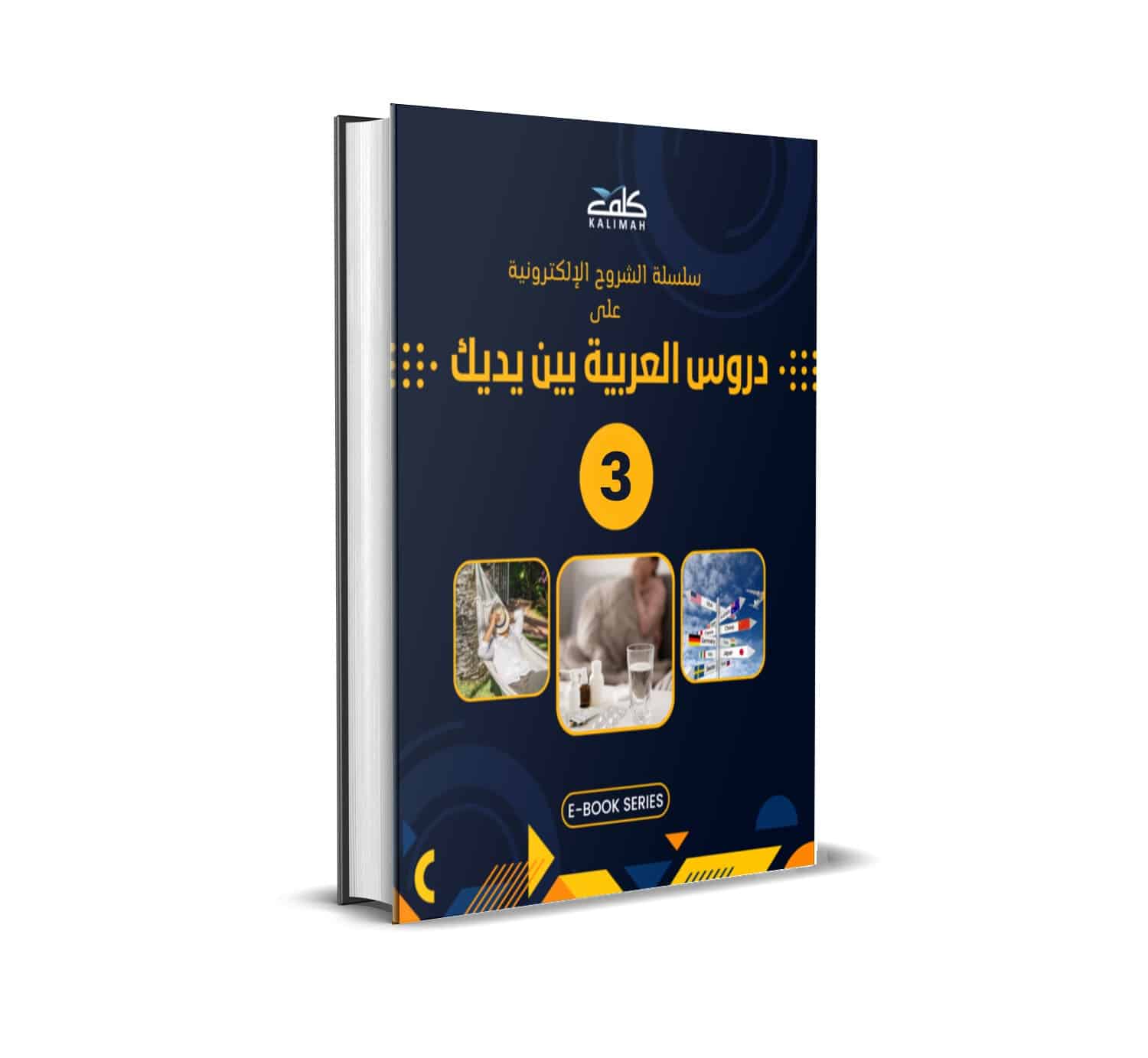In a nutshell: Is Arabic Hard to learn? Learning Arabic may seem hard with its unique script and grammar, but with engaging stories, interactive materials, and consistent practice, it transforms into a rewarding journey. By embracing the language’s logical beauty and using effective methods, anyone can master Arabic and appreciate its rich cultural tapestry.
Do you think learning Arabic is difficult for non-native speakers? That’s the question I posed to Mr. Ahmed, a seasoned Arabic teacher (and my friend).
In his answer, he recalled flashes of his journey with a student named Othman, an American student eager to learn Arabic online.
During the first introductory session, Othman asked Mr. Ahmed the same question: “Is Arabic difficult to learn?” Mr. Ahmed tried to reassure him, “Learning Arabic might seem a bit scary at first, but with the right attitude and approach, it’s a really rewarding experience.”
In light of Osman’s educational experience, we will explore the answers to the following questions: How difficult is Arabic to learn? How to make Arabic learning easy? Why does Arabic sound harsh? What are the hardest parts in Arabic learning and how to Solve them? Is 2 years enough to learn Arabic? And more…
Is Arabic Hard to learn?
Learning Arabic through Quran isn’t as hard as you think. However, Arabic, with its rich history and intricate script, often intimidates learners at first glance.
Its script flows from right to left, a significant shift for those accustomed to Latin alphabets.
The phonetics of Arabic include sounds that don’t exist in many other languages, making pronunciation a bit tricky initially.
What Makes Arabic Hard to Learn?
So, what makes Arabic seem so daunting? Two of the most common challenges are its unique grammar and script:
- Grammar: Arabic grammar is indeed different from English or other European languages. It has a fascinating system of verb conjugations, noun declensions, and sentence structures that can seem like a puzzle at first. But with practice and patience, the pieces start to fit together, revealing the logical beauty of the Arabic language.
- Script: The Arabic alphabet, with its elegant curves and dots, can feel like a foreign landscape. But once you learn the letters and their sounds, reading and writing become a graceful dance.
Arabic has a root-based structure, where words are formed from three-letter roots, creating a wide array of related words.
This can be both fascinating and challenging. The complexity of verb conjugations and gender agreements adds to the initial struggle.
However, as Mr. Ahmed often tells his students, “Every difficult path leads to beautiful destinations”.
How to Make Arabic Learning Easy?
Othman’s journey illustrated that Arabic doesn’t have to be overwhelmingly difficult. Mr. Ahmed recognized Othman’s apprehension and knew the key was to make learning engaging and manageable. He introduced Othman to several effective methods:
1. Learning Through Stories
Immersing Othman in cultural tales that used simple vocabulary and repetitive structures provided a springboard for his Arabic development.
2. Engaging Material
By interacting with interesting narratives, Othman could absorb new words and grammar patterns naturally.
3. Building a Strong Foundation
The repetitive structures in the stories served as a foundation, allowing Othman to build upon his knowledge and gradually increase the complexity of the stories he could understand.
This approach, which mirrors the philosophy of Kalimah Center, turned Othman’s language learning experience into an enjoyable and enriching journey rather than a tedious exercise.
Kalimah Center understands that making learning fun is key to success. Therefore the Arabic Language curriculum incorporates:
- Captivating stories that capture learners’ interest and make learning enjoyable.
- Interactive exercises that allow learners to practice their skills in a dynamic and engaging way.
- Gamified elements that add an element of fun and competition, keeping learners motivated.
Coupled with high-quality learning materials, this approach has empowered countless students to overcome their apprehension and embark on successful Arabic language learning journeys. By embracing these principles, learners can discover that Arabic is not just a complex language to be mastered, but a beautiful and rewarding journey to be enjoyed.
Why Does Arabic Sound Harsh?
During one of their sessions, Othman asked Mr. Ahmed why Arabic sometimes sounded harsh to his ears.
Mr. Ahmed laughed gently, “It’s all about perception. The Arabic language has sounds that are not present in many other languages, like the emphatic letters (ص, ض, ط, ظ) and the glottal stop (ء).”
He explained that what might initially sound harsh to non-native speakers often becomes a beautiful and expressive aspect of the language once they get accustomed to it. “With time,” he assured him, “you’ll start to hear the melody in Arabic.”
What Are the Hardest Parts in Arabic Learning and How to Solve Them?
Othman faced many challenges, but Mr. Ahmed was always ready with solutions. He identified three key areas where learners struggle the most:
- Script and Pronunciation: Mr. Ahmed encouraged Othman to practice writing the alphabet daily and listen to native speakers to improve his pronunciation.
- Grammar: The intricacies of Arabic grammar can be overwhelming. Mr. Ahmed broke it down into small, digestible lessons, focusing on one rule at a time and using real-life examples.
- Vocabulary: The vast Arabic vocabulary pool was daunting. Mr. Ahmed suggested using flashcards and engaging in conversations to reinforce new words. “Consistency is key,” he reminded him.
Is Arabic Grammar Hard?
No, Arabic grammar is not that hard. And here is why:
One session, as Othman was working through his grammar exercises, he said grimly, “Arabic grammar is so hard!”
Mr. Ahmed nodded, understanding his frustration. “Arabic grammar is different, but not necessarily harder,” he explained.
He compared it to a puzzle, where each piece has a specific place and once you understand the rules, it becomes easier to see the bigger picture.
“The gender rules, verb conjugations, and sentence structures may seem complex, but they add a unique logic to the language. We’ll take it step by step.”

How Long Does It Take to Learn Arabic?
It takes over 400 learning hours. Mr. Ahmed explained that it varies for everyone. “Some achieve conversational fluency in a few months with intense study, while others take years.”
He emphasized the importance of setting realistic goals. Aim for small milestones, like holding a basic Arabic conversation, reading a simple story, or writing a short essay. Celebrate each achievement.”
For example, the time it takes to learn Arabic at Kalimah Center varies depending on several factors:
- Your chosen course: Each course has a different duration, ranging from 1-2 months for most levels to 3-4 months for the Arabic Alphabet course.
- Your current level: Beginners might need more time than those with prior knowledge.
- Your learning pace: Some students progress faster than others.
- Your commitment and attendance: Consistent study and participation are key to efficient learning.
However, Kalimah Center offers a comprehensive 16-level program with over 400 hours of one-on-one sessions, which can give you a good estimate of the overall time commitment required to reach advanced proficiency.
If you want a more precise estimate for your specific situation, it’s recommended to contact Kalimah Center. As the experts can assess your level and goals and provide a personalized timeline for your Arabic learning journey.
Is 2 Years Enough to Learn Arabic?
Yes, 2 years is enough time to learn Arabic.
As Othman continued his lessons with Mr. Ahmed, he often wondered if two years would be sufficient to become proficient in Arabic.
Mr. Ahmed smiled and said, “It depends on your goals and the effort you put in. In two years, with consistent practice and immersion, you can achieve a strong conversational level.”
He shared stories of past students who, with dedication, managed to read, write, and speak Arabic fluently within 2 years. “Remember,” he added, “Language learning is an ongoing process, the important thing is not to stop learning, and enjoy the learning journey.”
Is Arabic Hard to Learn for English Speakers?
No, Arabic is not hard to learn for English speakers like othman. However, Arabic poses some specific challenges due to differences in script, sounds, and sentence structure.
However, the logical root system of Arabic can actually make vocabulary easier to learn once the initial hurdles are overcome.
Arabic or English, Which is Harder?
A debate sparked during one of the group classes at Kalimah about which language is harder: Arabic or English.
Mr. Ahmed explained that difficulty is subjective. “For Arabic speakers, learning English can be challenging due to the different script and grammar rules, just as Arabic poses challenges for English speakers.”
He highlighted that each language has its complexities and beauties. “The key is to appreciate the journey and the cultural insights each language offers.”
Is Arabic Hard to Learn for Spanish Speakers?
No, Arabic is not hard to learn for Spanish speakers. Interestingly, Spanish speakers might find some aspects of Arabic easier due to historical connections between the two languages.
For example, many Arabic words entered the Spanish language during the Andalusian era.
Is Arabic Hard to Learn for Hindi Speakers?
No, Arabic is not hard to learn for Hindi speakers. However for Hindi speakers, learning Arabic can be a mixed bag. While the script and pronunciation are different, the presence of Arabic loanwords in Hindi can be an advantage.
Is Egyptian Arabic Hard to Learn?
No, Egyptian Arabic is not hard to Learn . Egyptian Arabic, due to its widespread use in media, is often considered one of the more accessible dialects for learners.
Mr. Ahmed explained, “Egyptian Arabic is prominent in media and films, making it slightly easier to pick up through exposure.”
Is Moroccan Arabic Hard to Learn?
Yes, Moroccan Arabic is slightly harder to learn. Moroccan Arabic, or Darija, may pose a unique challenge. Its vocabulary and pronunciation differ significantly from Modern Standard Arabic (MSA) and other dialects.
Lessons from Othman’s Experience Learning Arabic
Othman’s journey showed just how rewarding learning Arabic can be.
Every challenge he faced helped him understand the language and culture even more deeply.
As Mr. Ahmed always told him, “Don’t be afraid of the tough parts. They make your successes feel even better!”
As Othman looked back on his progress, he realized that while Arabic presented challenges, it wasn’t impossible to learn.
With hard work, the right tools, and a supportive teacher like Mr. Ahmed, anyone could start this rewarding journey.
He often remembered Mr. Ahmed’s encouraging words, “Don’t be afraid to make mistakes. Every word you learn brings you closer to understanding a rich and beautiful culture.”

If Othman can do it, so can you. It’s easy with Kalimah!
As you’ve seen through Othman’s journey, learning Arabic basics is not only possible but can also be incredibly rewarding with the right approach.
At Kalimah Center, we understand the unique challenges and joys of learning this beautiful language.
Courses We Offer:
- Arabic Alphabet Mastery: Lay a strong foundation with our 3-4 month course that ensures you can read and write Arabic efficiently.
- Basic Linguistics: Cover essential adverbs, interrogatives, and more in just 2-3 months.
- Everyday Conversations: Become fluent in daily life topics across 5 levels, each completed in 1-2 months.
- Advanced Societal Topics & Grammar: Delve into deeper conversations and grammar across 8 levels, each taking 1-2 months.
Visit Our Arabic Courses Here to explore our courses and start your learning Arabic journey with the best.
Conclusion:
Learning Arabic may seem daunting for non-native speakers, but with the right approach, it becomes an enriching experience. Arabic’s unique grammar and script, which initially appear complex, can be mastered through consistent practice.
The phonetics and right-to-left script are among the initial challenges, but with time, learners start appreciating the language’s logical structure and beauty. For instance, Arabic’s root-based system, while initially puzzling, helps in understanding and forming a wide array of related words.
To make learning Arabic easier, it’s essential to use engaging and effective methods. Stories and interactive materials can help immerse learners in the language, making the process enjoyable and less intimidating.
By building a strong foundation and progressively increasing complexity, learners can tackle the hardest parts, such as grammar and vocabulary. With dedication and the right guidance, like that provided by Kalimah Center, anyone can achieve proficiency in Arabic, turning it into a rewarding and beautiful journey.












